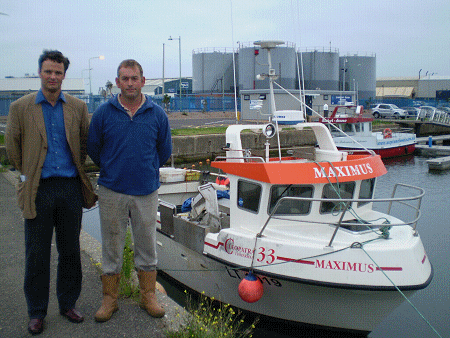Waveney MP Peter Aldous welcomes the EU’s commitment to back large scale fishing reform to save stocks but emphasises the importance of other measures to secure a fair distribution of quota.
This follows an historic vote in the European Parliament last Wednesday for sweeping reforms of the EU Common Fisheries Policy (CFP). The MEPs voted for the package by 502 votes to 137. It includes measures to protect endangered stocks and end discards, which account for a quarter of total catches under the current quota system. Under the new proposals, the EU will shift from the current bargaining over quotas to fishing based on Maximum Sustainable Yield (MSY). The reforms commit to a maximum sustainable yield from 2015 to ensure that fish are not harvested more than a stock can reproduce and for depleted fish stocks to recover by 2020.
Mr Aldous highlights that the current fisheries policy favours large-scale fishing operations and has led to an unsustainable growth in the fishing capacity of the EU fleet, which is in turn fuelling overfishing. While the largest vessels catch most fish, small-scale fishing vessels make up about 80% of the European fishing sector. The reformed Common Fisheries Policy will endorse policies to bring down the EU’s fishing fleet in line with the availability of the fish in the sea, to promote small-scale and low-impact fishing methods and to eliminate the practice of discarding.
Since his election in May 2010, Aldous has long campaigned in the House of Commons for an urgent review of the current regime imposed on local fishermen in Lowestoft. He calls for a transparent quota management system, improvements to the supply chain and a decentralisation of the Common Fisheries Policy, with local fishermen working alongside scientists to tailor solutions to fit the needs of individual fisheries and local communities. He will seek to investigate how the Common Fisheries Policy will help small boats, how it will cushion fishermen while stocks are recovering and how much fisheries should be allowed to recuperate under the new reforms.
Mr Aldous said:
“This news provides a great opportunity for fishing fleets like those in Lowestoft to have a sustainable future, although it is vital that we ensure that they get a fair share of the quota and a simpler system that addresses the issue as to who owns the quota. I will continue working with local fishermen to do what I can to ensure they achieve a better deal and I look forward to following the debate as it progresses.”
It is hoped that the changes can become law by next year.

